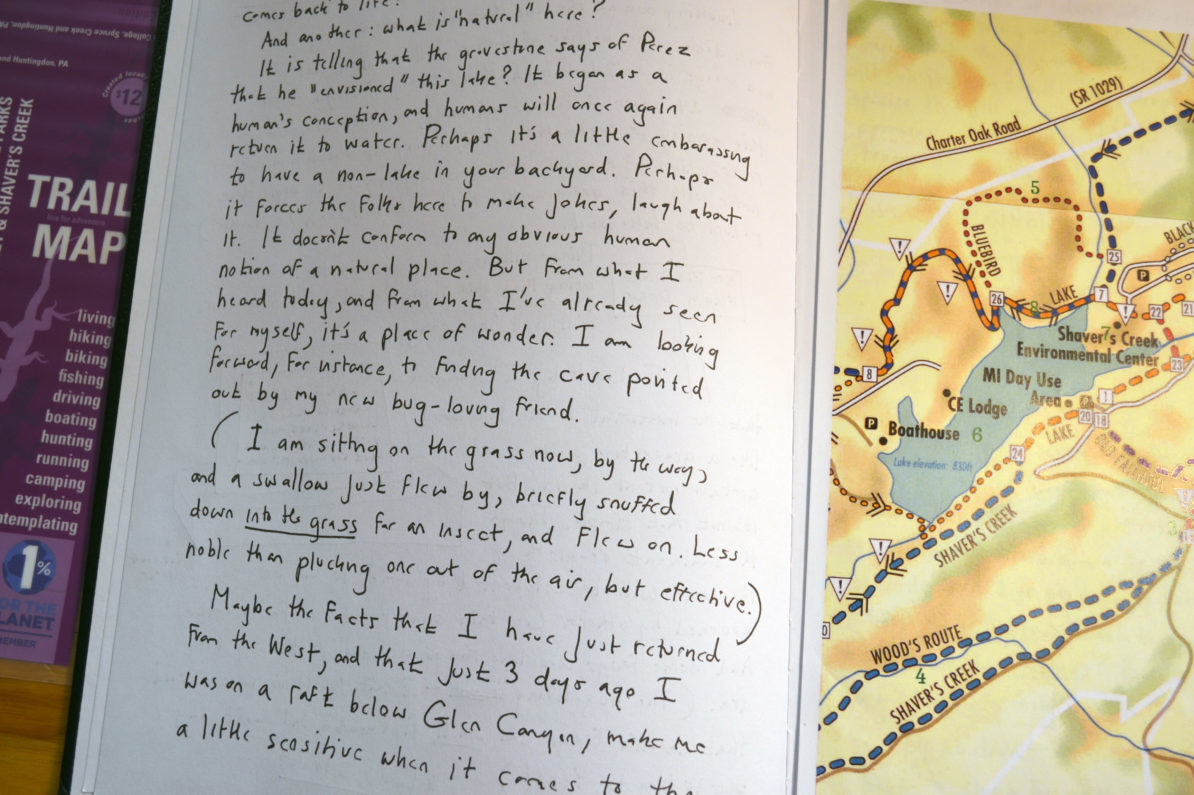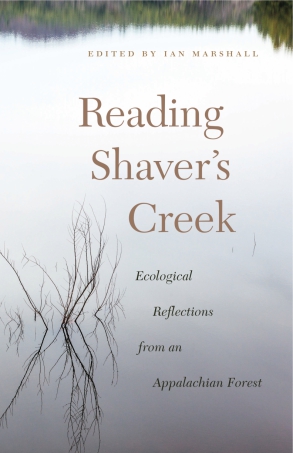
What does it mean to know a place? What might we learn about the world by returning to the same place year after year, say for a hundred years? What would a long-term record of such visits tell us about change and permanence and our place in the natural world?

These are some of the questions explored by the Long-Term Ecological Reflections Project at Penn State University’s Shaver’s Creek Environmental Center and Stone Valley Experimental Forest. Each year visiting nature writers trek to eight designated sites in Stone Valley—nestled in Central Pennsylvania’s ridge-and-valley country, about twelve miles south of Penn State’s University Park campus. At each ecoreflections site, participants record what they see and experience and think about, with their observations informed by their academic background or unique creative approach. A mammalogist, then, might evaluate the site as habitat, while a poet may write a haiku. An environmental historian might seek clues as to past human habitation of the area, while a botanist describes the plant life. For the creative nature writer, the topic of reflection might be a comparison of Eastern forest and Western desert, or a reflection on the area’s soundscape. Past contributors to the project have included both local experts and nationally known nature writers and poets like Scott Weidensaul, David Gessner, John Lane, Marcia Bonta, Mike Branch, Katie Fallon, Julianne Warren, Todd Davis, Julia Kasdorf, and David Taylor. A “best of” collection from the first ten years of the century-long project was published 2018 as Reading Shaver’s Creek: Ecological Reflections from an Appalachian Forest, published by Penn State University Press and edited by Ian Marshall.
As the Shaver’s Creek Ecological Reflections Project enters its second decade, we seek applications to contribute to the project from nature writers, nature poets, and naturalists. We also welcome applications from scholars across the spectrum of disciplines in environmental studies—from the natural sciences, environmental policy, environment philosophy, environmental history, environmental economics, ecopsychology, art, photography, and so on; just keep in mind that the “ecoreflections” you produce should be aimed at a general readership. Contributors will receive a $1000 stipend and free lodging for six days and five nights in a rustic lakeside cabin at the Stone Valley Recreation Area (a ten-minute walk from the Shaver’s Creek Environmental Center). During the week-long residency, ecoreflectors will have access to the naturalist’s library (and the naturalists!) at the Environmental Center, and will be asked to share some of their work in progress in an informal reading/discussion with Shaver’s Creek staff and visitors. The ecoreflections produced during the residency will be published as part of the digital Creek Journals collection, and possibly printed in additional materials from Shaver’s Creek, including the Shavings newsletter for members, or another “best of” collection to be published at the end of our second decade.
Applications should include a cover letter establishing your interest and qualifications, a writing sample, and curriculum vitae; in your cover letter please indicate when in the next year or two you would be interested in participating. Applications will be considered from December 1 to January 31 each year. Any questions may be addressed to Doug Wentzel, Shaver’s Creek Program Director and Naturalist, at djw105@psu.edu.
Nature Writing Residency Application
"*" indicates required fields
